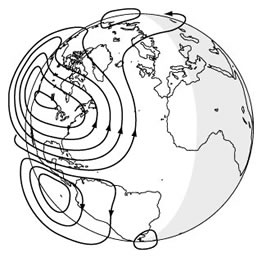(The above is one of the many downsides to always wanting to be technically correct, but I'm going to get back on track now.)
"Only a theory" is pretty much the same as saying "only everything we know." A theory, despite the colloquial definition, is not just some idea you had lying awake at night. Theories are amassed from vast amounts of information, all pieced together into one model that explains everything. And I mean everything.
If you look at the theory of gravity, or universal gravitation, the reason it was so amazing was that it connected the rules governing objects falling toward the Earth, and the rules governing the orbits of planets around the sun. Nobody before Newton had ever connected those two phenomena, but many had tried to explain one or the other separately. The problem was, without looking at the whole picture, a satisfactory answer was impossible.
So, let's be clear right now. In scientific terms, a theory is a model that explains all the information we have, but is impossible to directly observe. A hypothesis is an untested idea that, through research or experimentation, could be proved, disproved, or become a theory of its own (if it fits all the data yet is impossible to directly observe). A hypothesis that does not fit the data is discarded, and a hypothesis that fits some of the data, but not all of it, is probably waiting for a better one to come around.
A current model of atmospheric electric currents.
An outdated model of atmospheric electric currents.


